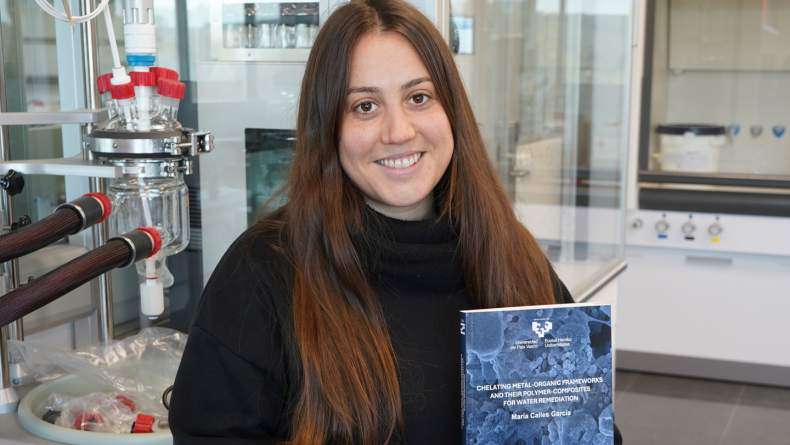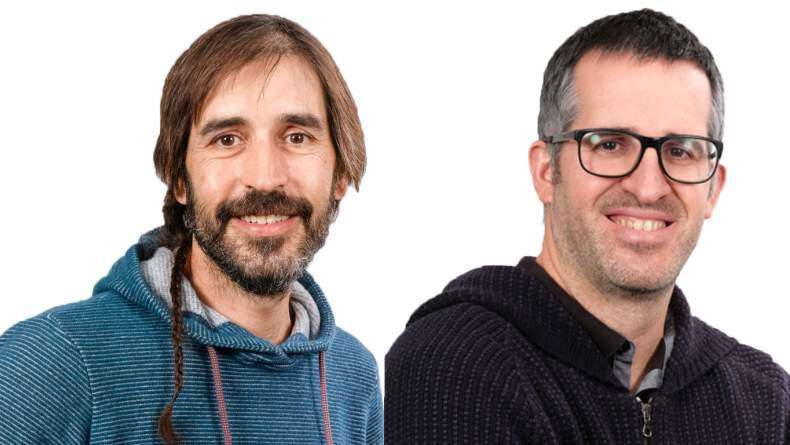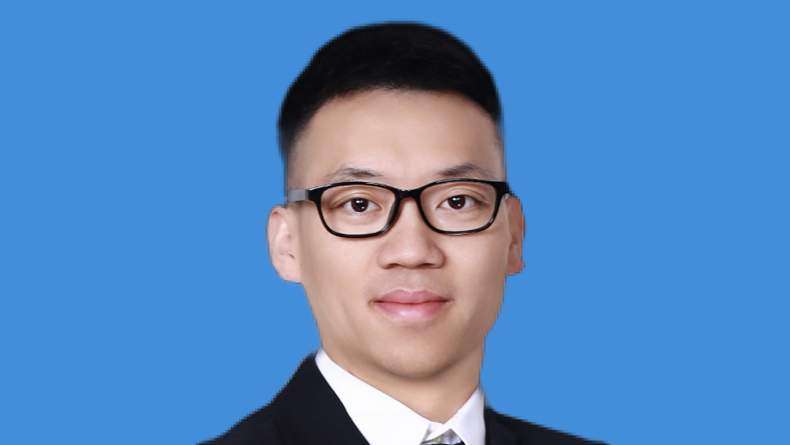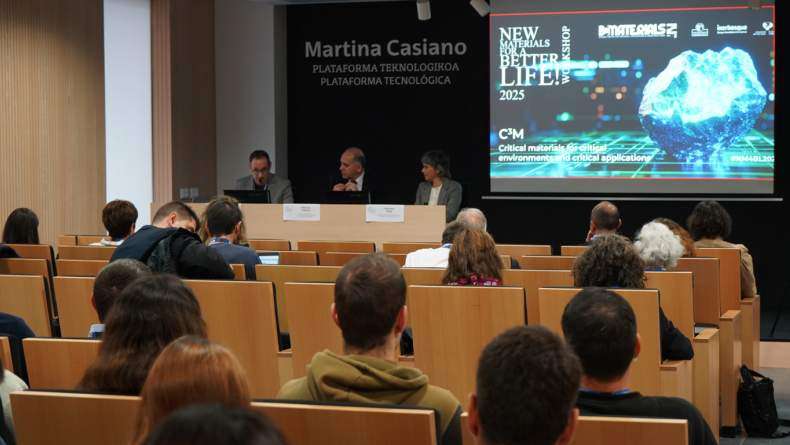Computational Chemistry for Colloidal Semiconductor Nanocrystals by Ivan Infante
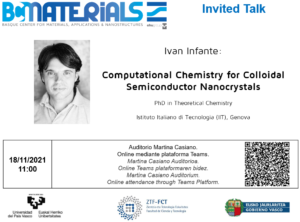
We are pleased to announce the invited talk given by Dr. Ivan Infante, at the Istituto Italiano di Tecnologia (IIT), Genova, entitled “Computational Chemistry for Colloidal Semiconductor Nanocrystals”.
While experimental protocols aimed at the synthesis and characterization of colloidal semiconductor nanocrystals are now well established, theoretical calculations of the same materials still present many challenges. Some of these are: the compromise in the size of the modelled systems, which have to be large enough to avoid too strong quantum confinement effects but small enough to be described computationally; the construction of a nanocrystal model system that represent closely that found in the experiment, and the possibility of adding surface ligands that increase dramatically the computational requirements. A successful methodology to tackle some of the above issues is Density Functional Theory (DFT), which scales cubically with the number of atoms, but that in recent years was capable to provide important insights in the electronic structure and geometry of several colloidal nanocrystals of up to 3nm in size. However, a strong limitation of DFT is the high computational cost, which prevent on the one hand the inclusion of solvent and ligand molecules as in the experiments and on the other, performing long timescale simulations to study rare events like ligand binding at the surface, trap formation rates and phonon induced non-radiative quenching. To address these chemico-physical processes, the field moved to computationally cheaper alternatives such as those based on classical force fields. These methods however have also important drawbacks, such as the development of accurate force-field parameters and more importantly the lack of information on the electronic structure of the material studied. In this framework, novel machine-learning techniques are poised to bridge the gap between DFT and classical force fields to enable DFT quality simulations on colloidal nanocrystals also for long timescale events. In this talk I will therefore discuss the most important achievements obtained in the semiconductor nanocrystal field by theoretical methodologies and an outlook of future developments. The talk will be on November 18th at 11:00. The event is free and open for everybody, it will be at the Martina Casiano Auditorium and also online via TEAMS with the following link: https://teams.microsoft.com/l/meetup-join/19%3ameeting_NmM0ZTBmNjctMjVjOC00ZDc3LTkxYWEtYmQ3NTkxZGQxYjU0%40thread.v2/0?context=%7b%22Tid%22%3a%222f54ab68-83af-4d70-8895-a0d1e95ec899%22%2c%22Oid%22%3a%227778b4e1-e06d-485b-b530-cf013d4e9498%22%2c%22IsBroadcastMeeting%22%3atrue%7d&btype=a&role=a Do not miss it!
Related news
María Calles, New Doctor of BCMaterials
We would like to congratulate María Calles García for obtaining her PhDs in Materials Science and Technology from the UPV/EHU. On December 4 made a brilliant defense of her thesis titled ‘Chelating…Invited Talk with Barcelona Microelectronics Institute’s researchers (December 3)
On December 3 at 12:00 PM, in the Martina Casiano Auditorium in Leioa, BCMaterials will host senior researchers Antón Guimerà and Xavier Illa from the Barcelona Microelectronics Institute (IMB-CNM,…Invited Talk by Liu Yao on Lithium-Metal Batteries (December 2)
Next Monday, December 2, Liu Yao, professor at the Shanghai Institute of Applied Physics, will give an invited lecture at BCMaterials entitled ‘Li-Metal Batteries: From Liquid to Solid-State’. The…Success of BCMaterials’ Annual Workshop on Critical Materials
The 2025 edition of BCMaterials’ annual workshop gathered nearly one hundred participants on November 19 in Leioa to review the latest advances and discuss critical materials, their applications, and…
